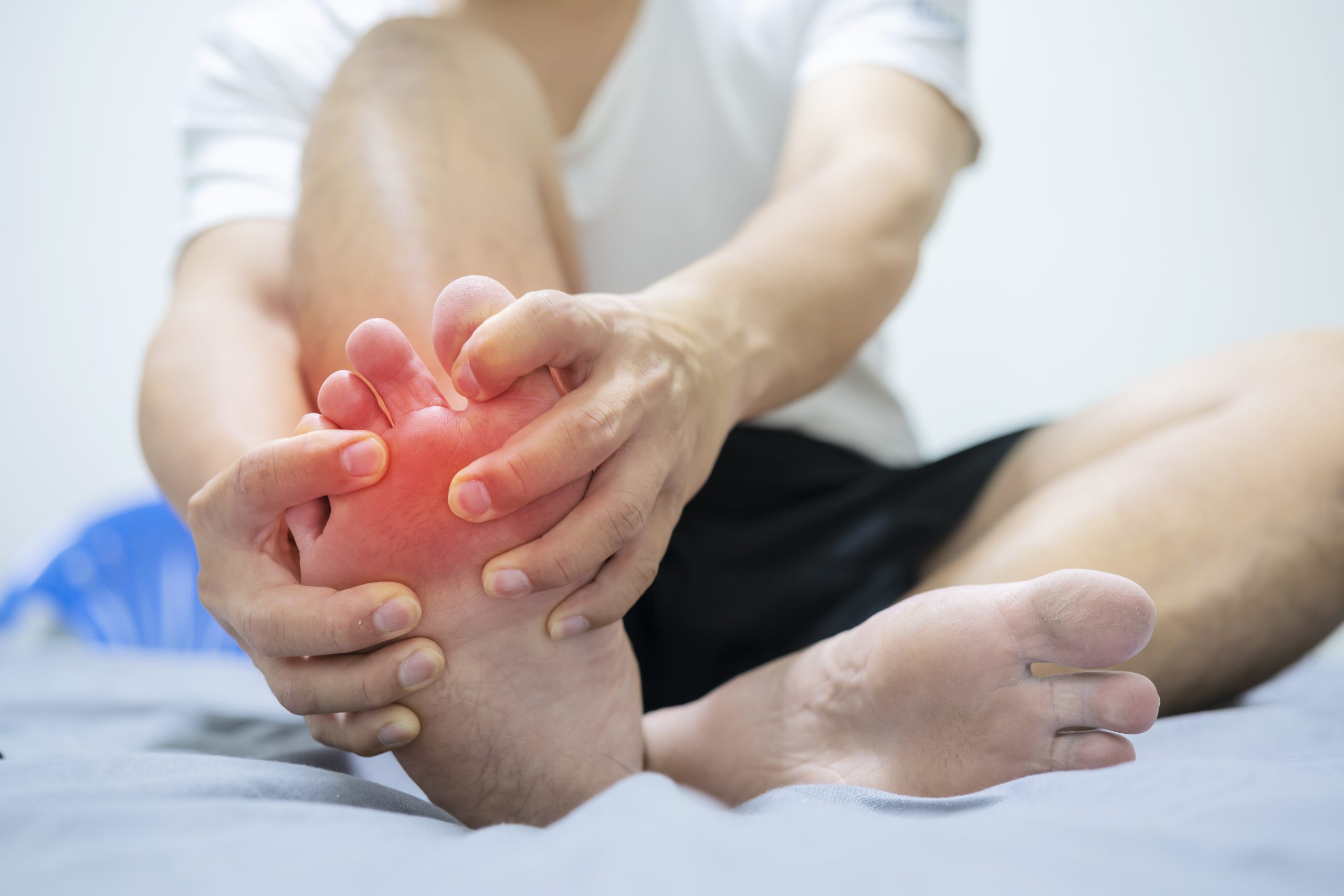Gout is a metabolic condition in which excessive uric acids accumulate in the body. This causes uric acid deposits. Gout attacks are characterized by severe joint pain, most commonly in the big toe.
This is the best treatment for Gout: Gout Treatment
What is Gout?
Gout is a metabolic disorder. The body can become too acidic. This can lead to the formation of uric acid crystals. These crystals are especially found in the joints. Painful inflammation of the joints could be a possible result. Gout attacks often start in the big toe or, more specifically, the big-toe-base joint.
There are many Home Remedies for Gout: Home Remedies For Gout
Gout Causes: What causes it?
A high level of uric acid is a prerequisite for gout. This is medically called hyperuricemia. Hyperuricemia is a condition in which the body’s balance of the excretion and formation of uric acids is disrupted. The kidneys excrete most of the uric acid, while the intestines only excrete a small amount.
Many times, a combination of all the causes is found. Gout can also be caused by genetic changes. Gout patients’ relatives often have high levels of uric acid. Experts can tell the difference between different types of gout.
In this Channel you will learn all about Gout: Gout Home Remedy
Primary Form: Hyperuricemia can be caused by a congenital metabolic defect. Nearly always, the kidney excretes more uric acid that is necessary. In very rare cases, an enzyme defect is responsible for excessive uric acid production.
Secondary Form: Hyperuricemia can be caused by other disorders or diseases. Secondary gout can be caused by other diseases or disorders, such as leukemia, blood disorders that cause many cells to break down, kidney disease or certain medications (diuretics), for example.
What are the triggers for Gout attacks?
External factors can trigger attacks or promote gout if there is an already-presented tendency to gout. These include purine-rich foods, alcoholic drinks, and metabolic fluctuations such as those associated with strict diets, diabetes mellitus, or other conditions. An acute gout attack can also be caused by physical stress, such as injury, unnatural exertion, infection, or other factors.
Gout Symptoms: What are the Signs?
Gout attacks usually start in one joint (acute, gouty arthritis). It is often the base joint of your big toe. This type of gout is also known as podagra. Metatarsal, ankle, knee, and metacarpophalangeal joint of the thumb are all also affected.
Here you will learn more about the Symptoms of Gout: Gout Symptoms
What happens when you feel a Gout attack?
Acute gout attacks almost always occur in a completely healthy person. People affected often feel severe pain and are attacked at night or early in the morning. The diseased joint can be extremely sensitive to touch, painful to move, and it may also appear reddened, bluish, or reddening. Fever is often accompanied by the attack.
If appropriate treatment is not provided, the acute condition may last several hours or even days. The acute condition can recur and spread to other parts of the body if it is not treated.
What is a Gout tophi?
Uric acid crystals can form in the joints, bursae and tendons. Gouty tophi, also known as nodules, can form. These are larger clumps made up of uric acids crystals. Tophi is now rare due to modern therapy methods.
The disease can lead to severe complications if it isn’t treated properly. These include chronic joint inflammation, deformation, bone damage, bursitis and kidney weakness. People with chronic gout often experience persistent joint pain and swelling.
Curcumin is special for relieving Gout pain: Home Remedy for Gout
Gout Treatment: What are the best Ways to prevent it?
The doctor will prescribe medication to treat acute gout attacks.
There are several Options for Treatment:
- Certain anti-inflammatory antirheumatic drugs that are not cortisone-free (e.g. naproxen or diclofenac, ibuprofen, etc.)
- Cortisone preparations are usually available in tablet form
- Colchicine
- A general recommendation may be made by the doctor, such as
- Elevating the affected joint
- If necessary, temporary bed rest
- Keep the cover of the bed away from sensitive joints
- Cooling compresses
- Light, low-purine food
- Get enough Fluids
Gout treatment for long-term purposes is not recommended after the acute phase. This will help to avoid recurring attacks. Patients with severe symptoms should talk to their doctors about lifestyle changes that would benefit them. These are the most common: Slowly lose excess weight through healthy eating and regular exercise. Avoid “radical diets”. If you are able to do so from a medical perspective, be physically active.
Gout Diet
Gout sufferers can also follow the same principles of a healthy and balanced diet. They should avoid purines-rich foods. Purines in foods cause the body to make uric acid. It is possible to use nutrient tables to show the uric acids in foods for everyday living. A nutritional counseling session may be helpful. This can be discussed with your doctor. A healthy diet can help prevent future attacks.
A healthy diet is very important if you suffer from Gout: Gout Diet
